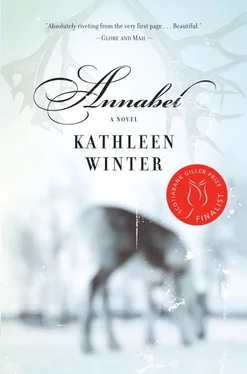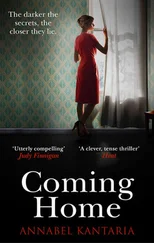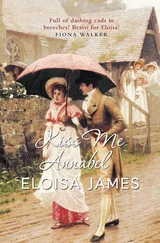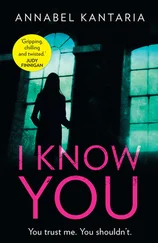But was there a place where she could live with truth instead of lies? Truth or Consequences was another TV show. She could relate to that title. You told the truth or you lived with consequences like these. If you held back truth you couldn’t win. You swallowed truth and it went sour in your belly and poisoned you slowly.
There was a pale green pill Wayne cut in half with the small, heavy knife his mother used to peel potatoes. There were two white capsules full of powder, which he knew was also white since he had broken one to find out. Finally there were two tiny, flat yellow pills that his mother, when he had asked, had told him were to prevent dizziness.
“Am I a diabetic?” Kevin Slab was diabetic, and he had pills, but his were orange.
“No.”
“Do I have leukemia?” In grade four Joey Penashue had got leukemia and lost his hair.
“No.”
“Do I have a brain tumour?” Last year Stevie White, who had sat two seats in front of Wayne, developed a brain tumour and died.
“No.” Jacinta sounded more impatient than she wanted to.
“Which ones can I stop taking when I start taking the new ones in grade seven?”
They had been through this before. He liked to get it straight, Jacinta believed, as this was the only aspect of the pills about which he was certain.
“You can stop taking the white ones. But then you will take four yellow ones instead of two, and you might have to have a needle.”
“But we won’t know if I need a needle until Dr. Toumishey examines me.”
“It might not be Dr. Toumishey. It might be a doctor you haven’t met.”
“Will it be Dr. Hedgehog?”
The specialist was always changing. Once it had been a Dr. Edgecombe, who had wanted to examine Wayne’s throat using an extra-wide tongue depressor that looked as if it were made of sandpaper. Wayne wouldn’t open his mouth, and Dr. Edgecombe had told Jacinta to pin his arms and pinch his nose so he couldn’t breathe. “He’ll open up then,” Dr. Edgecombe had said. Wayne had been six.
“No. Dr. Edgecombe has gone back to St. John’s.”
“Maybe this time I won’t need a needle.”
“I wish you could just wait and see.”
“If you had to take a needle you’d like to know about it first.”
“That’s true.”
“Will I have to take another needle after the first one?”
“You might.”
“If I knew how many then I would know when it was over.”
“I know. We would know where we stood.”
“Me. Not we.” This was new. Now that Wayne was twelve he demanded accuracy, and justice.
“You’re right. You. You would know where you stood.”
“What if I have to have four needles?”
“You might. You might need more than four. But you might not have to have any. We won’t know until the doctor examines you.”
“Remember that time we went, Mom? Remember the sign on the glass?” A card posted on the receptionist’s cage had said, PLEASE TELL US IF YOU LEAVE WITHOUT BEING SEEN. Wayne had looked at it for a long time. He had been eight. He had looked carefully at all the people in the waiting room, then he had said, “Mommy, do invisible people come in here?”
“Yes,” Jacinta had said. “There has been a parade of them since we came in.”
“How do you know?”
“Can’t you see their wet footprints all over the floor? And they have measles.”
“How do you know that?”
“I read it in the paper. An epidemic of measles is affecting the invisible community of Goose Bay and the Labrador Straits.”
Wayne had giggled. “Mommy, what does the sign really mean?” he had asked, and she had told him.
“But you were right to wonder,” Jacinta had said. “It is grammatically confusing.” That day the specialist had prescribed the first yellow pills.
“Is what I have,” Wayne said now, “called something?” He did not like to have an ailment for which there was no word. He had never heard of anyone in his class having a nameless medical condition. Even the things that killed you had a name. He had not gone to Stevie White’s funeral, but his class had had that day off school, and Mr. White had taken his car through the Techni-Tone Car Wash in Goose Bay, and Stevie’s sisters and aunts had decorated it with six hundred Kleenex carnations, and Stevie’s coffin had been shiny black with white and pink satin inside and a picture of the Last Supper.
“If I had a brain tumour, would you tell me?”
Jacinta knew this was the last of his questions. It was always the last one, and she always answered it the same way. “You don’t have a brain tumour. I promise you that.”
“Mom?”
“What?”
“My feet are peeling.”
“Stop worrying about everything.”
“In bed. I felt them. The skin was peeling off. I pulled an edge and it came off in sheets.”
“Wait a couple of days and if it doesn’t get any better you can remind me about it.”
“Mom. That’s what you always say about everything.”
“You might already know this.” Treadway’s voice was half lost under the noise of his chainsaw. He was limbing the last log.
“What?” Wayne supposed his father wanted to tell him how to tie the rope that kept the logs on the sled. His father had ways of doing knots that had to be obeyed according to the task. The acrid gasoline fumes got up Wayne’s nose. He liked that. He liked the wood-sap smell, the physical lifting, the noise. His father was happy when Wayne helped him hoist wood. Wood hauling began on cold mornings when the first frost entered the ground, just before school started in the fall. You got to make a fire and boil tea and eat Vienna sausages out of the can with homemade bread and margarine.
“The facts of life,” Treadway hollered.
“It’s okay, Dad.”
“What?”
“It’s okay.”
Treadway shut off the engine. He was not glad of the silence. Their shouts hung over the caribou moss, in the spaces between spruce. “Get those blasty boughs and make a base.”
The circle of rocks was the one they had used last fall. All Treadway had to do was move two that had fallen out of the circle. They had brought birch rinds and back issues of the Labradorian , and Treadway handed Wayne his lighter. “You probably hear the facts of life in school. But a father likes to tell them straight. To make sure his son doesn’t get the wrong end of the stick.”
“Dad, it’s okay. You don’t have to go into it. Honest.” This was not entirely true. Wayne had pieced together certain things, but there were gaps in the process as he understood it.
Treadway lit the sticks. They inhaled the sugary smoke. They were sweaty from hauling wood and they peeled their coveralls down and sat on cushions of frozen caribou moss in their undershirts. Crumbled lichen and needles and sap lay on their collarbones and shoulders.
“I’ll just get it over with,” Treadway said, “and I will have dispatched that part of my duty. Your mother reminded me.”
“Dad.”
“And she’s right. So you probably notice sometimes now, when you wake up, you might have, you know, wetness in the bed.”
“What?”
“You might have thought you wet the bed. You might be worried about it.”
“Dad. I don’t wet the bed.”
“It happens to all boys.”
“It doesn’t happen to me.”
“So it’s just ejaculation and you shouldn’t worry about it. The next thing is you probably noticed you get an erection sometimes.”
“Dad.”
“That’s what they call a hard-on.”
“Dad!”
“But the real name is an erection, and it’s nothing to be embarrassed about. No one can tell.”
“Dad, stop it.”
“You might think they can but they can’t. It can happen any time, not just when you’re thinking about a girl.”
Читать дальше












